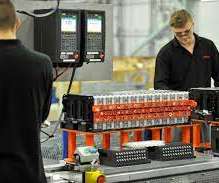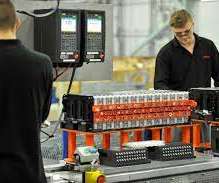PARC building cleantech portfolio; co-extrusion printing of novel battery electrodes and carbon-neutral renewable liquid fuels from atmospheric CO2
Green Car Congress
MARCH 9, 2011
Schematic of the HP-BPMED device used in the renewable fuels research. (a) PARC is developing a non-biological approach for producing liquid fuels from renewable energy, air, CO 2 and water. As long as the energy for the process is renewably generated, PARC notes, the overall process is carbon-neutral. Click to enlarge.












Let's personalize your content